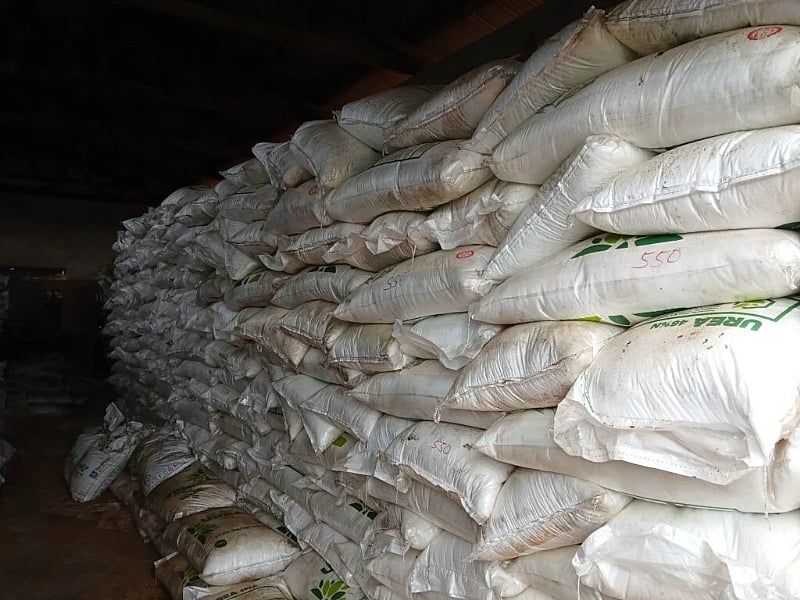The Nadowli-Kaleo District Assembly in the Upper West Region of Ghana has launched a comprehensive agricultural relief program to address the severe impact of a recent prolonged drought on local farming communities. This initiative, designed to revitalize the agricultural sector and bolster food security, involves the distribution of essential farming inputs, specifically fertilizer and high-yield maize seeds, to farmer cooperatives throughout the district. The program is a crucial component of the government’s broader Feed Ghana Programme, a national strategy focused on strengthening the agricultural sector through strategic support, extension services, and improved market access. The Feed Ghana Programme aims to stimulate local food production, reduce reliance on imported food products, and promote sustainable and climate-resilient agricultural practices.
The distribution of fertilizer and high-yield maize seeds is a timely intervention aimed at mitigating the losses incurred by farmers due to the drought and enabling them to resume productive farming activities. Hon. Madam Mary Haruna, the District Chief Executive (DCE), has emphasized the government’s commitment to ensuring that all genuine farmers benefit from this support program. While acknowledging that the distribution process is ongoing and may take time to reach all eligible cooperatives, she reassured farmers of the Assembly’s dedication to equitable distribution and comprehensive coverage. The DCE emphasized that this initiative is not a one-time event but rather a long-term strategy to strengthen the local agricultural base and achieve sustainable food security for the region.
A key aspect of the Feed Ghana Programme is the registration of farmers, a process that will facilitate effective monitoring and evaluation of the program’s impact. Registration will enable the district authorities to track input distribution, monitor farm performance, and provide continuous technical assistance to participating farmers. The DCE urged all serious farmers in the district to register under the Feed Ghana Programme to access future inputs, technical support, and other benefits. She stressed that registration is a prerequisite for participation in the program, emphasizing the need for farmer cooperatives to organize themselves and cooperate with agricultural extension officers to ensure smooth registration and subsequent access to program benefits.
To ensure the integrity and effectiveness of the program, the DCE issued a strong warning against misuse and misappropriation of the subsidized inputs. She cautioned individuals who are not actively engaged in farming or animal husbandry against attempting to collect the subsidized items, emphasizing that the program is strictly for genuine farmers. This firm stance against potential abuse is crucial to safeguarding the program’s resources and ensuring that the intended beneficiaries receive the necessary support. The District Agriculture Department, in collaboration with agricultural extension officers, has been entrusted with the responsibility of ensuring fairness, transparency, and appropriate technical guidance throughout the distribution and application of the inputs.
Beyond the distribution of inputs, the Nadowli-Kaleo District Assembly has planned a series of training and educational sessions for farmers on best practices in fertilizer application, improved seed planting techniques, and climate adaptation strategies. These training sessions will equip farmers with the knowledge and skills necessary to maximize yields and enhance their resilience to future climate-related challenges. The comprehensive approach of the program, combining input support with capacity building, reflects the government’s commitment to promoting sustainable and climate-smart agriculture.
The initiative has been widely praised by community leaders and influential figures in the district, who recognize its potential to revitalize farming activities and restore hope to households impacted by the drought. The timely intervention of the Assembly, coupled with the collaborative efforts of local authorities, farmer groups, and agricultural experts, sets a positive example for building a more resilient and sustainable food system in Ghana. As the district continues its efforts to recover from the drought, farmers are encouraged to fully utilize the provided support, maintain active communication with agricultural extension officers, and contribute feedback to enhance the program’s effectiveness. This collaborative and participatory approach is essential for ensuring the long-term success of the initiative and promoting sustainable agricultural development in the region.


